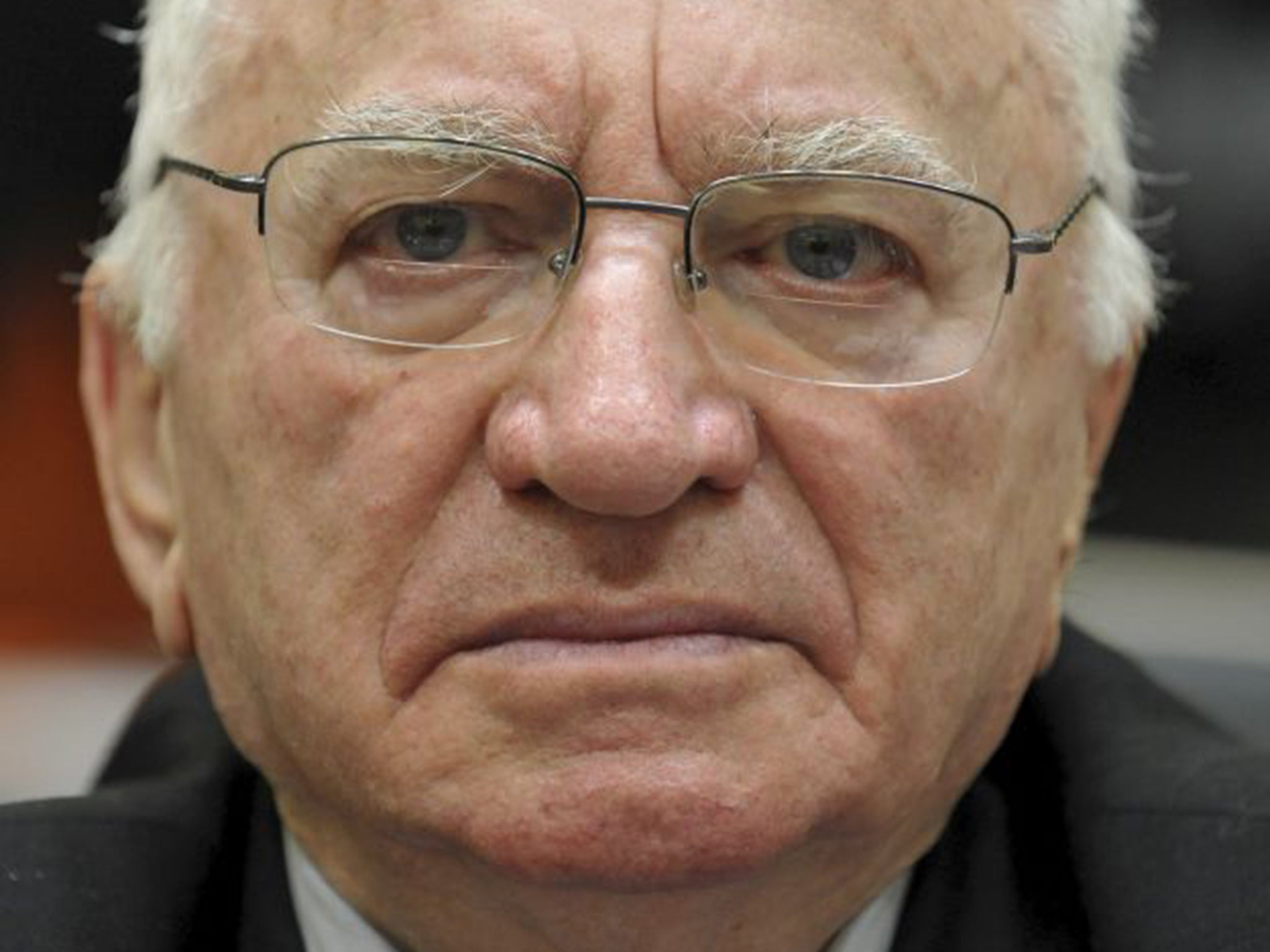Thomas Toivi Blatt: Writer and activist who was one of the survivors of the break-out from the Nazi death camp Sobibor in 1943
Blatt lectured about the Holocaust, wrote two books and campaigned to preserve the site of one of the few uprisings by Jewish inmates against Nazi guards during the Second World War

Your support helps us to tell the story
From reproductive rights to climate change to Big Tech, The Independent is on the ground when the story is developing. Whether it's investigating the financials of Elon Musk's pro-Trump PAC or producing our latest documentary, 'The A Word', which shines a light on the American women fighting for reproductive rights, we know how important it is to parse out the facts from the messaging.
At such a critical moment in US history, we need reporters on the ground. Your donation allows us to keep sending journalists to speak to both sides of the story.
The Independent is trusted by Americans across the entire political spectrum. And unlike many other quality news outlets, we choose not to lock Americans out of our reporting and analysis with paywalls. We believe quality journalism should be available to everyone, paid for by those who can afford it.
Your support makes all the difference.Thomas Toivi Blatt was among a small number of Jews to survive a mass escape from the Nazi death camp of Sobibor in 1943. Decades later he served as a prominent witness at the trial of the Nazi camp guard John Demjanjuk.
Blatt, who lost both parents and a younger brother in the gas chambers of Sobibor, lectured about the Holocaust, wrote two books and campaigned to preserve the site of one of the few uprisings by Jewish inmates against Nazi guards during the Second World War.
He was born in 1927, in Izbica, a town in Poland that was largely Jewish and Yiddish-speaking, although his family wasn't devout. He was 15 when the Germans created a ghetto in the town in 1942.
When the family was taken to the extermination camp in April 1943, he was pulled out to do odd jobs, fixing a fence and sorting documents. His parents and brother Henryk were murdered immediately. He remembered his last words to his mother: "And you didn't let me drink all the milk yesterday. You wanted to save some for today." He said he was haunted with regret. "I would give anything to be able to recreate that moment, to change it and hug her and tell her I love her," he wrote in From the Ashes of Sobibor: A Story of Survival.
Six months after his arrival, Blatt took part in the camp's uprising, in which most of the Nazis were killed and 300 prisoners escaped. Most were hunted down and shot, but Blatt was among about 60 who survived. He eventually moved to the US, settling in Santa Barbara, California, and owned three electronics shops.
In the 1980s, he returned often to the camp to check on its condition, regularly finding human bones among the weeds. "I've practically cleaned up one quarter of the place myself, picking up the bones, burying them," he said. He was later a witness in the trial of the retired Ohio car-worker John Demjanjuk, a former Ukrainian who was convicted as an accessory to murder in 2011 but died in 2012 insisting that he had not served as a guard.
Blatt spoke of the depression that would hit him after lecturing about the Holocaust. He said that the longer he lived the more he thought about his little brother. "I never escaped from Sobibor. I'm still there – in my dreams, in everything," he said. "My point of reference is always Sobibor."
VANESSA GERA
Thomas Toivi Blatt, Holocaust survivor: born Izbica, Poland 15 April 1927; married (children); died 31 October 2015.
Join our commenting forum
Join thought-provoking conversations, follow other Independent readers and see their replies
Comments